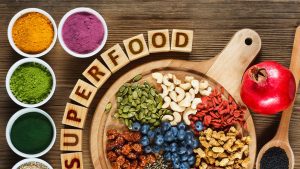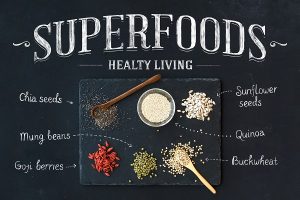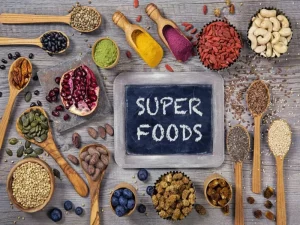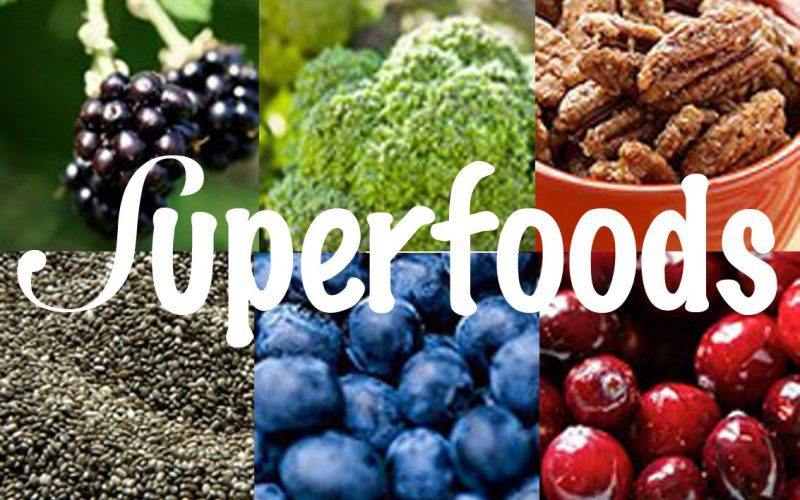Introduction
Superfoods have become a buzzword in the health and wellness industry, touted as miracle ingredients that can boost your energy, improve your skin, and even prevent diseases. From acai berries to kale, these foods are often credited with extraordinary health benefits. However, not all superfoods are created equal, and some claims may be more hype than reality. This article delves into the truth about superfoods, separating myths from facts and helping you make informed choices about what you eat.
What Are Superfoods?

Superfoods are nutrient-dense foods that offer significant health benefits due to their high content of vitamins, minerals, antioxidants, and other beneficial compounds. They can be fruits, vegetables, grains, or other edible items that have been promoted for their potential to improve overall health.
Common Superfoods: Separating Myths from Facts

- Acai Berries: Acai berries are often praised for their high antioxidant content and supposed weight-loss benefits. While they do contain antioxidants and essential nutrients, there is no scientific evidence to support the claim that they aid in significant weight loss.
- Kale: Kale is celebrated as a superfood due to its high levels of vitamins A, C, and K, as well as minerals like calcium and iron. However, some people may experience digestive issues or an overload of certain nutrients if consumed excessively.
- Goji Berries: Goji berries are said to improve vision and boost immunity. While they do contain vitamins and antioxidants, many of the health claims are not supported by robust scientific evidence.
- Chia Seeds: Chia seeds are rich in omega-3 fatty acids and dietary fiber, making them a great addition to a healthy diet. However, they may cause gastrointestinal discomfort in some individuals if consumed in large quantities without adequate hydration.
- Quinoa: Quinoa is often hailed as a complete protein and a great gluten-free alternative. It does offer excellent nutritional value, but it can be relatively high in calories compared to other grains.
Challenges and Considerations

- Regulatory Issues: The term “superfood” is not regulated by food safety authorities, leading to misleading marketing claims. Many products labeled as superfoods may not contain the advertised quantities of beneficial compounds.
- Lack of Standardization: There is no standardized measure for what qualifies a food as a superfood. This makes it difficult for consumers to know exactly what they are getting in terms of nutritional value.
- Potential Allergies and Interactions: Some superfoods may cause allergic reactions or interact with medications, especially in people with pre-existing health conditions. It’s important to consult a healthcare professional before adding new foods to your diet.
Conclusion
While many superfoods do offer genuine health benefits due to their nutrient-dense profiles, not all claims are supported by scientific evidence. It’s essential for consumers to approach the hype surrounding superfoods with a critical eye and focus on incorporating a variety of whole, unprocessed foods into their diets. By understanding both the myths and facts about superfoods, individuals can make more informed choices that align with their health goals.












